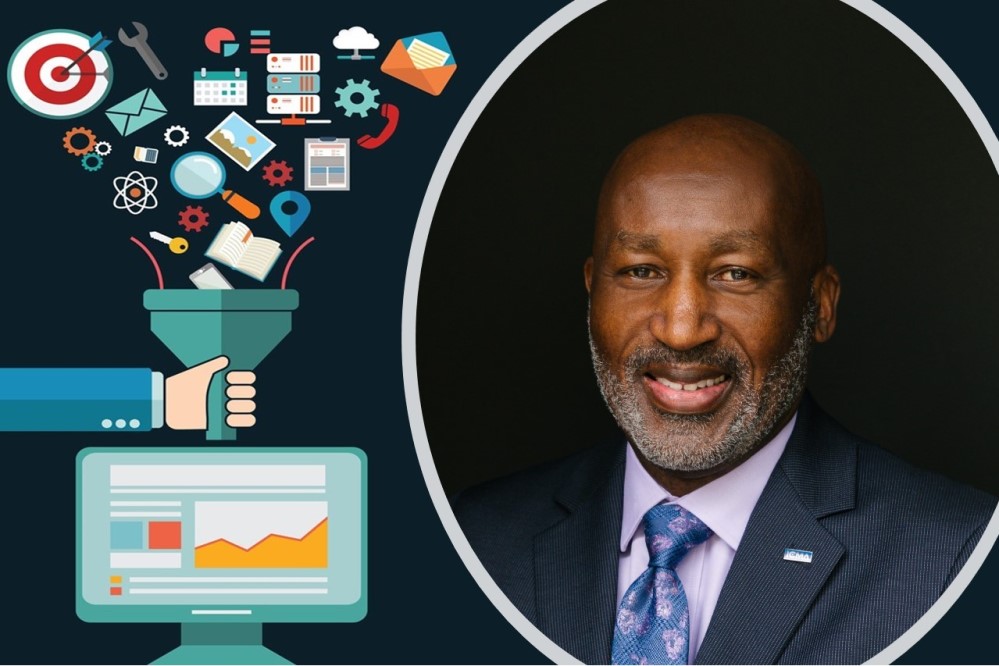
There’s a pervasive feeling in this moment of profound exhaustion. Delivering public services during an ongoing public health crisis has made incredible demands on local government, which has led to staff shortages and mental health challenges. To keep up, we have relied heavily on technology—by expanding our existing capacity, as well as deploying new and sometimes untested systems.
There is nothing inherently ethical or unethical in our use of technology. But as I and many of you have experienced, there are occasions when a solution meant to save time, increase productivity, or assist in achieving improved performance metrics has resulted in unintended outcomes.
Two years ago, many offices raced to establish a remote work environment—often in organizations in which working from home was not even an option. After 24 months, we have all grown accustomed to computer screens filled with the tiny faces of our work teams, so much so that “Zoom fatigue” has been identified as a workplace hazard. The necessity of adapting to COVID-19 protocols has produced these unintended consequences and now we are searching for ways to adapt yet again.
As leaders, keeping staff and residents engaged is a top priority. As COVID restrictions loosen, we search for ways to reclaim the interpersonal interactions so necessary to achieving organizational goals. One-on-one, in-person conversations remain effective and satisfying for many of us. Another “intended outcome” of this low-tech option is that these interactions are free from distractions. We can fully concentrate on supporting and serving the individual. We can bring our whole selves to the conversation.
Values-driven Technology
Technology that gets ahead of our values can undermine our best intentions. Without a properly trained analyst, for example, we may be collecting terabytes of data from private citizens that sit in a warehouse unused and could potentially be compromised. In the name of productivity, we may install a communication system that in fact does the opposite and creates greater inefficiencies and frustrations in the workplace with “always on” channels and unclear direction.
We might rely so heavily on algorithms for evaluating job applicants that ideal diverse or non-traditional candidates are screened out before ever speaking to an actual recruiter who might appreciate their potential contributions. Performance management systems, too—whether measuring speeding tickets or student absenteeism—can lead to outcomes very different from serving the best interests of our residents.
As we move out of crisis mode, we have the opportunity to more carefully examine how technology, guided by our core values can help us achieve the best and brightest future for our communities. As always, the ICMA Code of Ethics acts as the scaffolding for our decision-making. Our values of transparency and inclusion act as our guide as well.
Forming cross-disciplinary and diverse evaluation teams can offer a range of perspectives to better inform the technology selection and deployment process. Involving all stakeholder segments in the testing and rollout phase can both uncover hidden issues and foster a more positive reception for new technologies. It is also important to assess the equity of technology implementation. Will all community segments equally realize the benefits of a new technology, and if not, how can that issue be remedied?
Slowing Down the Process
Across the globe, local governments have been dealing with the clash between operating a city, county, or town at its peak, and ever improving performance with the core values of the community. We want lower crime, but not by using faulty artificial intelligence systems that unjustly target communities of color. We want better traffic management and improved services, but not at the expense of a 24/7 surveillance mentality. We want the convenience of a wide range of online services, but not at the expense of collecting and storing our personal data that could be compromised. Taking the necessary time to consider the input of all stakeholders and to check in with peer communities will slow the process down, but also lead to a more balanced approach. ICMA members and partners have a wealth of information to share on the pitfalls and opportunities of this challenging dichotomy. ICMA regional and annual conferences will continue to explore solutions.
When our technology innovations are well-planned, mission- and values-driven, and thoughtfully deployed, they have the power to enhance and even transform the lives of every resident in every community and even avoid unintended outcomes.

MARC OTT is executive director/CEO of ICMA, Washington, D.C.
New, Reduced Membership Dues
A new, reduced dues rate is available for CAOs/ACAOs, along with additional discounts for those in smaller communities, has been implemented. Learn more and be sure to join or renew today!
